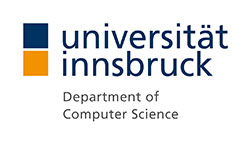We make the measurability of our R&D results one of our primary tasks. We want to show to the world that semantic technologies are becoming reality. Find out more about our results and our spin-off companies.
2nd International Workshop on Service Matchmaking and Resource Retrieval in the Semantic Web
One challenge of service coordination in the semantic Web is concerned with how to best connect the ultimate service requester with the ultimate service provider? Like intermediaries in the physical economy, a special kind of software agents, so called middle-agents, is supposed to solve this problem based on the declarative characterization of the capabilities of both service requester and provider agents. In fact, the standard W3C Web service interaction life cycle corresponds to the classical service matchmaking process.
More generally, semantic resource retrieval extends the notion of semantic service matchmaking to the process of discovering any kind of resource (services, data, information, knowledge) for given settings, participating entities, and purposes. It is at the core of several scenarios in the Semantic Web area, spanning from web-services, grid computing, and Peer-to-Peer computing, to applications such as e-commerce, human resource management, or social networks applications such as mating and dating services.
The SMR2 workshop provides a forum for promoting, presenting, and discussing the latest scientific advances on semantic Web service and resource retrieval; and Establishing and fostering cross-disciplinary relations between relevant parties in research and/or business for the purpose of joint work on solutions to relevant problems in the domain.
Contact person in charge.

